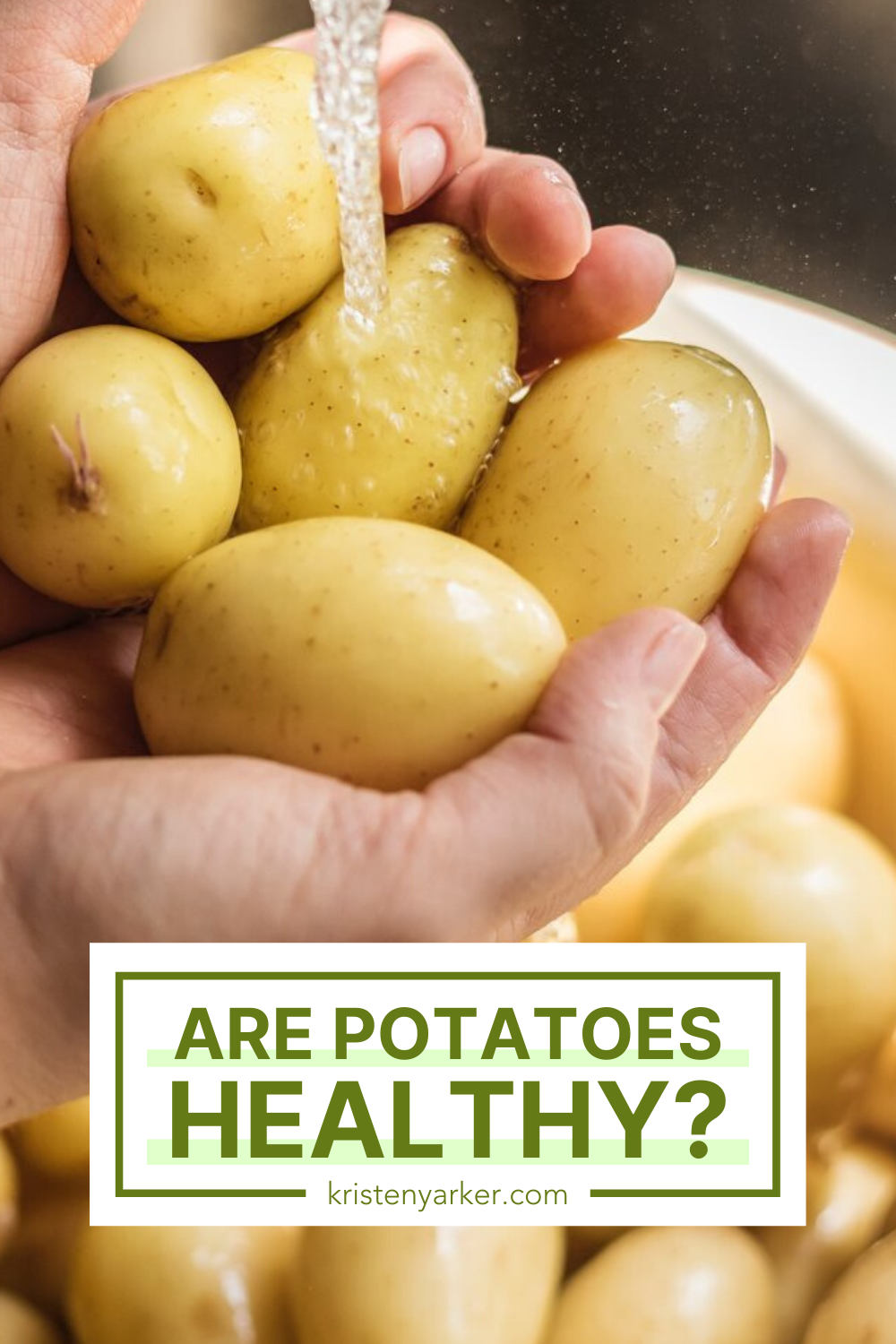Are Potatoes Healthy?
/Are potatoes healthy or are they not? There are so many different kinds. Are some better than others?
Let’s look at some of the nutritional benefits and drawbacks of potatoes.
Russet/ White/ Yellow Potatoes
Potatoes are very dense in carbohydrates (carbs), potassium, magnesium, phosphorus, vitamin C, vitamin B6 and a number of antioxidants. These nutrients have the health benefits of lowering blood pressure, support of proper brain and heart functioning, and the reduction of free radicals.
The peel is a good source of fibre. I call fibre the original detox. It helps your body remove toxins and aids in digestion.
Interestingly, potatoes contain fewer calories per gram compared to rice or pasta. They are low in fat and protein (although they do contain higher levels of four amino acids). Now of course it goes without saying, that potatoes are no longer low in fat when they’re deep fried into French fries or potato chips.
What About Sweet Potatoes/ Yams? And Purple Potatoes?
Let’s clear up the confusion between sweet potatoes and yams. I like how the North Carolina SweetPotato Commission (ncsweetpotatoes.com) describes the difference.
Sweet potatoes: “Depending on the variety, sweet potato flesh can vary from white to orange and even purple. That sweet, orange-colored root vegetable that you love so dearly is actually a sweet potato. Most people think that long, red-skinned sweet potatoes are yams, but they really are just one of many varieties of sweet potatoes.”
Yams: “A true yam is a starchy edible root of the Dioscorea genus and is generally imported from the Caribbean. It is rough and scaly.”
Sweet potatoes have roughly the same nutritional benefits as regular potatoes. But orange (i.e. sweet potatoes) and purple potatoes contain 2-3 times more antioxidants (such as beta carotene) than regular white/yellow potatoes and true yams.
Potatoes and Glycemic Index
When considering whether potatoes are healthy or not, one needs to consider the glycemic index (GI). According to the creators of the glycemic index, the glycemic index is a ranking of foods containing carbohydrates (carbs) on a scale from 0 to 100 according to the extent to which they raise blood sugar (glucose) levels after eating. Foods with a high GI are those which are rapidly digested, absorbed and metabolised and result in marked fluctuations in blood sugar (glucose) levels. Foods with a GI rating of less than 55 are considered low GI. Low GI foods produce smaller fluctuations in your blood glucose and insulin levels. Eating lower GI foods has been found to reduce your risk of type 2 diabetes, heart disease, lower cholesterol, and maintain weight loss.
The GI for potatoes varies greatly depending on:
Type of potato
Method of cooking/preparation
Here are some sample GI ratings for various types and cooking methods:
Sweet potato, boiled: 44 – 61. Range depends on cooking time.
Red-skin and white-skin potatoes, boiled (skin on): 68 – 96. Range depends on cooking time and variety of potato.
Mashed potato: 83
Baked sweet potatoes: 94
Baked Russet potatoes: 111
Alyssa’s Final Thoughts
It’s very common to find potatoes in the form of chips, fries, hash browns and buttery mashed potatoes. All that extra fat added during food preparation has always made me believe that potatoes are unhealthy, when it might just be the amount of added fat that’s making them seem unhealthy! As tasty as poutine sounds, I might just stick to preparing baked potatoes at home and reducing the intake of deep-fried potatoes from fast food joints and restaurants.
Kristen’s Final Thoughts
I don’t believe in the dichotomy that any food, especially any food from nature, is inherently “good” or “bad”. You can certainly eat a food out of balance, which can have negative health consequences. And, some preparation methods are more healthful than others. For example, I don’t think you needed me to tell you that potato chips aren’t the healthiest choice. There is no need to be afraid of potatoes or sweet potatoes. They are all natural foods that offer a lot of health benefits when eaten in the right balance. Oh yes, and eat the peels.
Thank you to co-author: the amazing student Alyssa Chai
North Carolina SweetPotato Commission: ncsweetpotatoes.com
Photo credit: rawpixel on Unsplash
Glycemic Index: The University of Sydney. http://www.glycemicindex.com/about.php
Love this post?
Pin it!
Save this post for later or share it with your friends and family on Pinterest.
Check out more of Kristen’s pins here.




